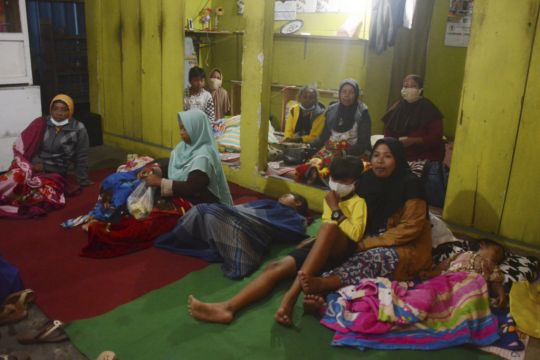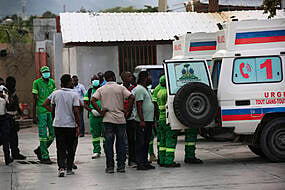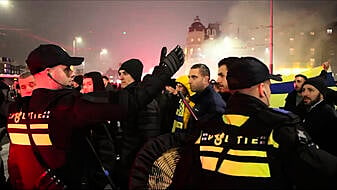The highest volcano on Indonesia’s most densely populated island of Java has spewed thick columns of ash, searing gas and lava down its slopes in a sudden eruption triggered by heavy rains.
At least one villager died from burns and dozens more were taken to hospital after Mount Semeru’s eruption in the Lumajang district of East Java province left several villages blanketed with falling ash.
Eko Budi Lelono, who heads the geological survey centre, said a thunderstorm and days of rain, which had eroded and finally collapsed the lava dome atop the 12,060ft Semeru, triggered an eruption.
He said flows of searing gas and lava travelled up to 2,624ft to a nearby river at least twice on Saturday.
People were advised to stay at least three miles from the crater’s mouth, the agency said.

“Thick columns of ash have turned several villages to darkness,” said Lumajang district head Thoriqul Haq.
Several hundred people were moved to temporary shelters or left for other safe areas, he said, adding that power blackouts had hampered the evacuation.
The debris and lava mixed with the rainfall formed thick mud that destroyed the main bridge connecting Lumajang and the neighbouring district of Malang, as well as a smaller bridge, Mr Haq said.
Despite an increase in activity since Wednesday, Semeru’s alert status has remained at the third highest of four levels since it began erupting last year, and Indonesia’s Volcanology Center for Geological Hazard Mitigation did not raise it this week, Mr Lelono said.
One man died from severe burns, and 41 others were taken to hospital with burn injuries, said Indah Masdar, the deputy district head.
She said two villagers were reported missing and several sand miners were trapped in isolated areas along the village river.
Entire houses in Curah Kobokan village were damaged by volcanic debris.
Television reports showed people screaming and running under a huge ash cloud, their faces wet from rain mixed with volcanic dust.
The last time Semeru erupted in January, there were no casualties.
Indonesia, an archipelago of more than 270 million people, is prone to earthquakes and volcanic activity because it sits along the Pacific “Ring of Fire”, a horseshoe-shaped series of fault lines.







